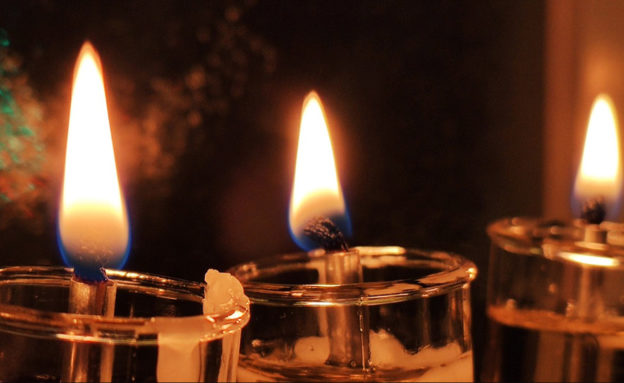Read Exodus 30:1-10,34-38
We all have smells that we enjoy. Perhaps it is the smell of a flower, or a wood fire, or a perfume. Maybe you love the smell of freshly mown grass, or of sawdust, or engine oil.
While God does not have a literal nose and sense of smell like us, he does enjoy the fragrant smells of prayer lifted up to him. In Exodus 30, we are introduced to another piece of furniture in God’s House, which the now-ordained priests were to maintain and serve. This altar of incense raised pleasing smells to their Divine King, which accompanied the prayer they offered.
In the previous chapter, Moses ordained the priests and his brother Aaron the High Priest to serve in God’s sanctuary. The priests offered sacrifices on the altar, and kept the lamps on the lampstand burning. They replaced the Bread of the Presence. There was plenty to keep them busy.
In addition to this, God instructed Moses to build a further piece of furniture for the Tabernacle, an altar on which to burn incense (v.1). As with the other furniture items in the Tabernacle, the altar was made of acacia wood and covered in gold, because of its proximity to God’s presence (vv.1, 3).
Much like the altar for animal sacrifices outside in the sanctuary grounds, the altar had four horns (symbolising strength and power) on it (v.3). It had golden rings with which to carry it on poles of gold-laced acacia wood (vv.4-5).
The altar for burning incense was smaller than the animal altar outside. It was a cubit “square, and two cubits shall be its height” (v.2). This equates to about 890mm high (about my waist height, I built a workbench that high), and about 450mm square. This size would have fit with the dimensions of the tent and the other pieces of furniture within it.
As with the other items in the Tabernacle, the altar had a specific place to sit. They were to put it “in front of the veil that is above the ark of the testimony, in front of the mercy seat that is above the testimony, where I will meet with you” (v.6). This placed it in the Holy Place, as the closest item to the veil in the tent which separated this room from the Most Holy Place, where the Ark of the Covenant sat and God’s presence dwelt. From this location, the incense would flow into the Most Holy Place.
The priests were to burn incense on the altar morning and night, as a regular offering (vv.7-8). This offering was to continue daily as an ongoing routine. At the same time as the daily burnt offerings on the altar, there would be an incense offering offered inside the Tabernacle.
It was important to keep the altar for its intended purpose. The altar was only for burning incense, and not for any other sort of offering (v.9). The only time in which the altar was to be ritually cleansed from the effects of sin was on the Day of Atonement, when the High Priest would cleanse it with a sprinkling of blood on his way into the Most Holy Place, which he entered but once a year (v.10).
Just as it was important the altar was used correctly, it was also important that the incense offered was as required. Aaron was to take specific spices (some of which we cannot specifically identify) and blend them together in equal proportion, blended with salt (vv.34-5). A measure was then taken and beaten into a fine powder for offering (v.36). None of this incense was for personal use, but belonged exclusively to God with a penalty of death for wrongful use (vv.37-8).
The symbolic importance of the incense is never explicitly stated, but it appears from other parts of the Bible it was associated with prayer. For instance, King David sings “Let my prayer be counted as incense before you, and the lifting up of my hands as the evening sacrifice!” (Ps. 141:2).
Also, Luke’s Gospel records how an angel appeared to Zechariah the priest as he served in the Temple, offering the incense while praying, with people gathered outside at the same time to pray (Luke 1:8-11). The rising incense symbolised those prayers ascending to God in his heavenly throne room.
The altar of incense then was a symbol of how our prayers ascend to God’s presence. The offerings morning and night show that prayer is meant to be a regular part of our lives, bathing every day, morning and night.
The exclusivity of the incense reminds of how important it is that our prayer is exclusively to God, and not shared with any other thing, created or imagined. Only God is the rightful hearer of our prayers, not anyone or anything else.
God will hear our prayers because we are cleansed by Christ’s blood. Cleansed and made most holy, our prayers ascend today to God’s heavenly throne, like the sweet fragrance burning on the altar of incense.

